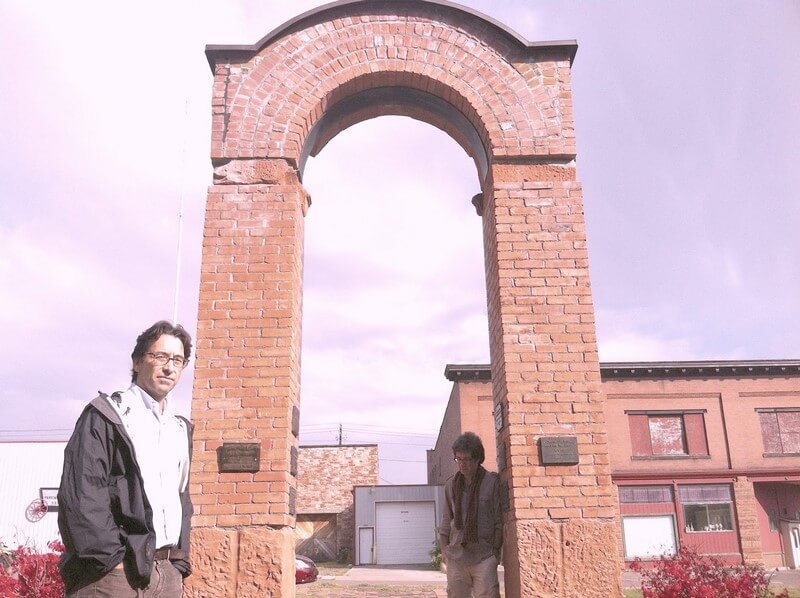"What is the purpose of music?" This is the central question which Arlo Guthrie ponders in 1913 Massacre, a feature by Ken Ross and Louis V Galdieri. It's a puzzle which is much more troubling than the film, the directors or the singer admit, or perhaps even consider, and one which is not entirely answered by the documentary's end.
1913 Massacre is the evocatively titled tale of a tragedy in Calumet, Michigan and the Woody Guthrie song of the same name, detailing the event. At the Italian Hall at Christmas time 100 years ago, a party was interrupted by a scream of “fire”, causing a rush to the door in which many people were trampled, crushed and died. Since then there have been whisper campaigns as to what happened that horrible night – who shouted the fake warning? Were the doors held shut from the outside by union busters to make certain tragedy would occur? What do some townsfolk know which they are refusing to say? For the course of the film, Ross and Galdieri try their best to unearth as much information as possible which will prove conspiracy theories correct, whilst also paying constant tribute to the titular song itself.
Arlo Guthrie is the son of Woody and, like his father, fancies himself as something of a folk troubadour. Ross and Galdieri’s camera follows him as he goes to Calumet where, early on in the film, he prepares himself for a gig in the town. The song his father wrote is bound to open old wounds in a town which has not fully healed from the tragedy; indeed Guthrie acknowledges this himself. Having been advised not to play the song, for the reasons above, for the sake of the feelings of the families of the victims, Guthrie spews “I HAD TO!” at recollection of his performance. There is an almost orgasmic glee in his cackle. “You could hear the tears.” Although I’m certain these were caused by choosing to regale a town with upsetting memories, Guthrie’s voice certainly can’t have helped matters: a brash honking sound like a goose caught in a bear trap, squealing for the early onset of death, emits from his throat every time his mouth opens.
The problem with 1913 Massacre, the film and the song, can be summed up by Arlo's attempt at romanticised self-mythologising. Stating that he knows all he does about American history through music, rather than textbooks, he wonders where all the songs are today to teach future generations about events of the past. Yet, not once does he stop to consider the validity and the truth in the lyrics he performs to validate himself through tears of others. If there composition is based entirely on conjecture can it be considered a real authoritative document of the past or simply just hearsay which has attained legendary status?
The simple truth of the matter is that no one knows for certain what happened that night in Calumet; there are gaping chasms and holes in both sides of the story (the ones saying it was a tragedy and one saying that the union busters somehow knew a call of "fire" would kill children and bring a strike to an end). As time grows further from that fateful evening, more and more evidence will get lost and, in lieu of fact, conjecture takes place. Conjecture becomes myth and myth becomes "fact"; this is dangerous. Woody Guthrie, the song's writer is someone who, lest we forget, was not at the Italian Hall (although the film reminds us he may have been to an Italian Hall, in a different location, some time after the event). The truth is lost in the sands of time and, as such, relying on Arlo Guthrie to document history can be as worrying as his overbearing, caterwauling vibrato.
By the end of the documentary we're not entirely, objectively, certain what happened that tragic night (despite the film-makers' attempts to lead us down a certain route of thinking) and we're not entirely sure what the point of music is either (despite Arlo Guthrie's grandstanding). All we know is that it can't be used in lieu of real academia or journalism; there's danger in believing myth as fact. Conjecture should not be considered an important historical document and to pretend it is, to self-aggrandize, is simply barbaric.
It's clear that Arlo Guthrie, an elitist, sees his own performances as somehow more "important" than most chart music when his is not the case at all. Even at it's most vacuous, popular music never descends to spreading gossip and hearsay, aiming instead to simply inspire happiness in it's listeners; there's far more "truth" is the rousing emotions teenagers across the globe will feel listening to One Direction, for example, than can be found in the inherited, self-important conjecture of Guthrie. Music can be for many things but, in the instance of 1913 Massacre, its certainly not always important.
* This film was screening as part of Bradford International Film Festival . You can read more about the movie, and buy the DVD too, at the film's site here .


No comments
Post a Comment